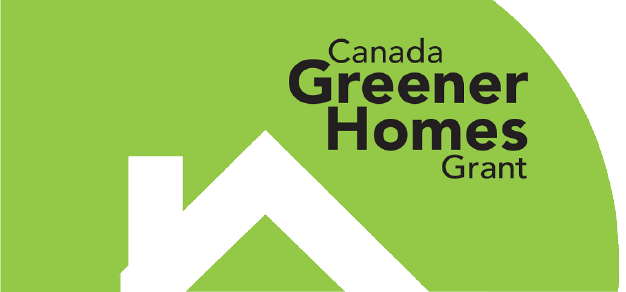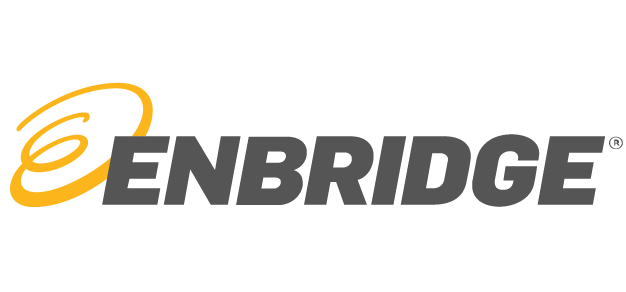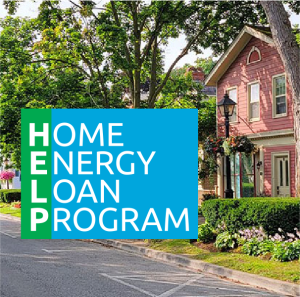As energy costs continue to rise and environmental concerns grow, energy efficiency has become a priority for Toronto residents and businesses alike. Toronto energy audits are a powerful tool for identifying inefficiencies and saving money, offering a path toward a more sustainable, cost-effective future. In Toronto, where energy prices can be high, an audit is a smart investment that can pay off in lower bills, increased property value, and reduced carbon footprint.
What is a Toronto Energy Audit?
Toronto energy audit is an assessment that analyzes how energy is used within a home, business, or building. By examining heating and cooling systems, insulation, and other energy-consuming components, an audit identifies areas where energy is wasted and recommends changes to optimize usage.
If you’re interested in gaining a deeper understanding of energy audits, we’ve dedicated two comprehensive articles to the subject. These articles dive into the process, benefits, and key considerations of energy audits in detail, offering valuable insights on how they can help optimize energy use. You can find the links to both articles below to explore the topic further.
Types of Recommendations from Energy Audits
Toronto Energy audits often provide a range of recommendations to optimize energy use, depending on the budget and goals of the organization. These recommendations are typically divided into three categories:
- Low-Cost Measures
These are simple, cost-effective changes that are easy to implement and can yield immediate savings. Low-cost measures often involve minimal expenses and quick payback periods, making them ideal for organizations looking to see fast results with minimal investment. Common examples include:
- Switching to LED lighting: LED lights consume less energy than traditional bulbs and last much longer, reducing both energy and replacement costs.
- Adjusting thermostat settings: Small adjustments to heating and cooling settings, especially during non-peak hours, can help save energy.
- Sealing air leaks: Simple steps like sealing doors and windows to prevent drafts can improve heating and cooling efficiency.
- Using energy-efficient power strips: Installing power strips to control devices and reduce standby power consumption.
- Operational Changes
These recommendations focus on optimizing how existing equipment is used and maintained. They typically don’t require significant investment but may involve changes in behavior or processes to reduce energy waste. Examples of operational changes include:
- Adjusting schedules: For example, reducing HVAC usage during non-working hours or adjusting lighting schedules to match occupancy.
- Implementing preventive maintenance: Regular maintenance for HVAC systems, machinery, and other equipment can ensure they are running at peak efficiency.
- Employee training: Educating staff about energy-saving practices, such as turning off lights when leaving a room or using equipment efficiently.
- Adjusting equipment settings: Optimizing the operational parameters of equipment, like reducing water temperatures in heating systems or moderating fan speeds in HVAC units.
- Capital Investment
These are larger, longer-term investments that often require a substantial budget but can lead to significant energy savings and long-term benefits. While the initial costs are higher, these upgrades usually provide the best return on investment over time. Examples include:
- Installing solar panels: Solar energy systems can offset a substantial portion of electricity costs and reduce dependence on the grid.
- Upgrading to energy-efficient HVAC systems: Modern HVAC systems are far more efficient than older models, helping reduce energy consumption and improve indoor air quality.
- Automating systems: Automation can optimize lighting, HVAC, and other systems based on occupancy, time of day, or external temperature, ensuring energy is only used when needed.
- Replacing outdated machinery: Investing in energy-efficient appliances, machinery, and equipment can result in substantial energy savings, especially in industrial settings.

How to Get Started with a Toronto Energy Audit
Starting the toronto energy audit can feel like a big task, but it’s easier when broken down into manageable steps. Here’s how to get started and make the most of the resources available:
- Evaluate Your Needs and Set Goals
Begin by defining what you hope to achieve with the energy audit. Are you looking to lower costs, reduce environmental impact, or comply with energy regulations? Setting clear goals helps you understand the level of detail you need (basic walkthrough audit, detailed audit) and makes it easier to communicate expectations to a professional auditor if you choose to hire one.
- Collect Basic Data
Before conducting the audit, gather recent energy bills, utility statements, and any equipment maintenance records. This data provides a baseline for understanding current energy consumption patterns, identifying seasonal trends, and highlighting areas of concern. You may also want to make note of any specific issues, like rooms that are consistently too hot or too cold, which can help guide the audit.
- Research Local Resources and Incentives
In Canada, numerous local utility providers, along with provincial and federal government programs, offer incentives, rebates, and subsidies for energy audits and energy-efficient upgrades. Many utility companies offer free or subsidized energy audits as part of their energy efficiency initiatives. Additionally, you may qualify for rebates on energy-efficient upgrades like lighting, insulation, or HVAC systems, making the recommended changes more affordable. Contact us today, and our energy auditor will help you find the best available rebates, ensuring you receive maximum value from your energy audit.
Now in Toronto, several programs are available to help make energy audits and upgrades more affordable. Some of the current rebate programs include:
Canada Greener Homes Grant: This program supports energy-efficient home improvements, including insulation, windows, and heating systems, and reimburses the cost of an energy audit.
Enbridge Home Efficiency Rebate: Available to Toronto homeowners, this program offers rebates for upgrades like insulation, air sealing, and efficient windows or doors, helping cover the cost of both the upgrades and the initial energy audit.

Canada Greener Homes loan
Up to $40,000

Enbridge Home Efficiency Rebate (HER) New
Up to $5,000
- Book a Toronto Energy Audit
For larger facilities or businesses seeking a more in-depth analysis and comprehensive insights, a Toronto Energy Audit with us is often the best choice. Our certified energy auditors, who are well-versed in the latest technologies and efficiency standards, conduct thorough assessments of your entire facility. The audit includes a detailed report with specific, actionable recommendations tailored to optimize energy consumption, improve efficiency, and reduce operating costs.
After the Toronto Energy Audit, create a simple plan based on the recommendations.
During the audit, our energy auditors will examine key areas such as insulation, lighting, HVAC systems, and appliances to pinpoint where energy is being wasted. Based on these findings, you can begin by implementing low-cost, operational changes that can make an immediate difference in your energy usage. These initial changes will help you start saving right away without a significant upfront investment. Once you’ve made these adjustments, consider setting aside a budget for more substantial, long-term upgrades. By prioritizing the most impactful changes first, you’ll not only start seeing savings quickly but also build momentum for future improvements, helping you achieve greater energy efficiency over time.
Ready to start saving energy and money?
It’s time to take control and make your space more efficient! Don’t wait, booking your Toronto Energy Audit today is the first step toward a greener, more cost-effective future. Our expert team is ready to help you uncover hidden energy savings and create a personalized plan to transform your home or office. Fill out the booking form below and let’s get started on your journey to energy efficiency. The sooner you take action, the sooner you’ll start saving, what are you waiting for?
Home Energy Audit is the first step to start your retrofit grant
Success Stories: Energy Audits in Action
Small Business in Toronto
Consider the example of a small business in Toronto that conducted a detailed energy audit. By implementing low-cost changes and upgrading outdated HVAC systems, the business reduced its annual energy costs by 20%. Such case studies highlight how even small adjustments can make a noticeable impact on monthly bills.
Office Building Energy Audit
In a multi-story office building, a detailed energy audit revealed that the HVAC system was outdated and ran continuously, even during off-hours. The audit recommended switching to programmable thermostats and installing occupancy sensors. Additionally, lighting was upgraded to LED fixtures. These low-cost measures, combined with an optimized HVAC schedule, led to a 25% reduction in energy costs, saving the company thousands of dollars annually. Beyond cost savings, the upgrade enhanced indoor comfort and lowered the building’s carbon footprint.
Manufacturing Facility
A large manufacturing facility conducted an energy audit to address high electricity costs and maintenance expenses. The audit identified several operational changes and capital investments, including regular maintenance for equipment, adjusting machine schedules to off-peak hours, and upgrading outdated machinery with more energy-efficient models. These changes cut the facility’s energy expenses by 30%, improved equipment lifespan, and boosted productivity by reducing unplanned downtime.
An energy audit can be an invaluable step toward both financial savings and a reduced environmental impact. By thoroughly understanding your energy consumption patterns and identifying areas of waste, you can make informed decisions that lead to long-term benefits, including lower energy bills, increased comfort, and a significantly smaller carbon footprint. For Toronto residents and businesses, an energy audit is more than just a way to cut costs—it’s a proactive investment in sustainable living and responsible energy use. From enhancing equipment lifespan to reducing operational expenses, the insights gained from an energy audit can drive meaningful, positive change.
Today, book an energy audit and take the first step toward a more efficient, cost-effective, and environmentally friendly future.
Let us help you unlock the full potential of your energy savings!
Book Your Energy Audit
A Home Energy Audit is the First Step to Apply for Any Energy Retrofit Rebate.
"*" indicates required fields














